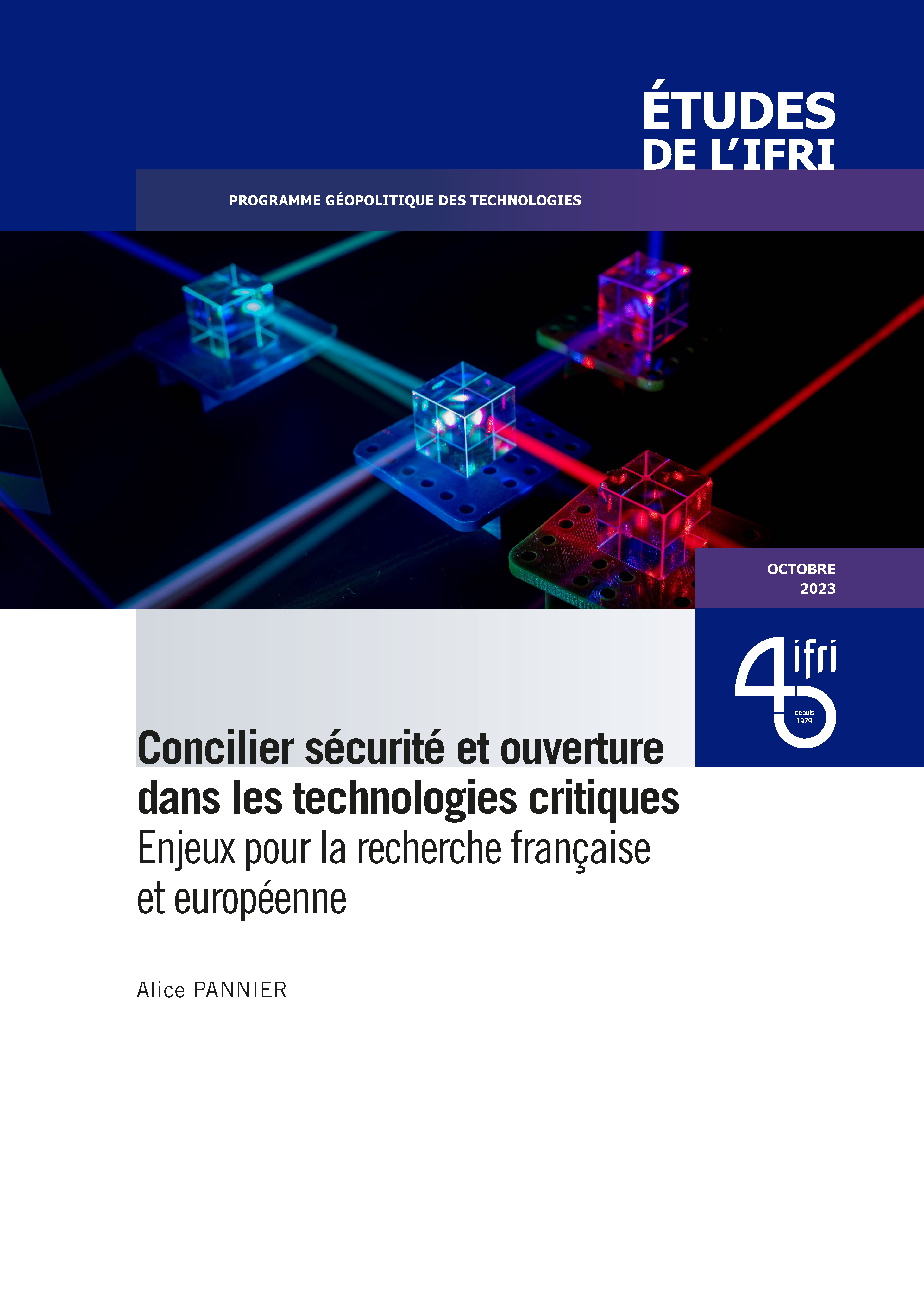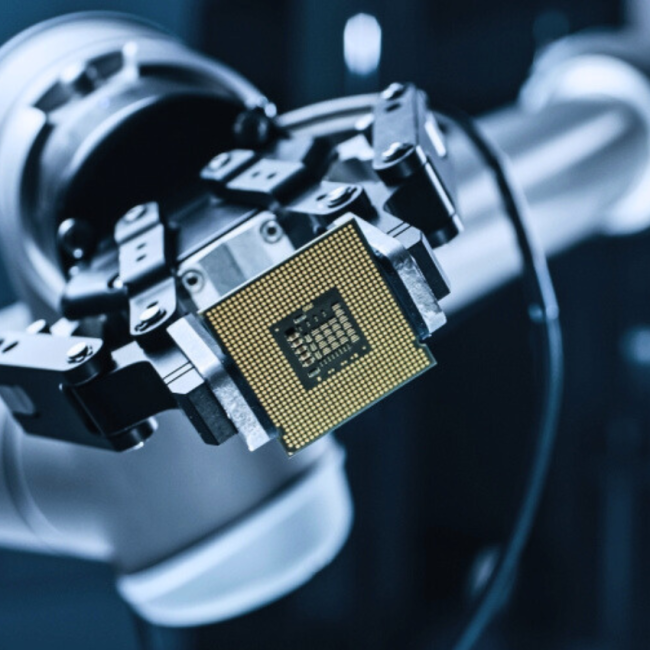Balancing Security and Openness for Critical Technologies: Challenges for French and European Research

While matters related to research security and international partnerships in critical domains are certainly not new, they have become increasingly central to governments, research institutions and industry since the turn of the 2020s.

Critical technologies have security and economic implications, and by definition concern science and technology fields that are constantly evolving. For governments and industry alike, they raise questions about their ability to anticipate and manage the potential repercussions of exploiting research results. Research into critical technologies thus finds itself at the heart of a dilemma, between the field of scientific research, which is intrinsically open and characterized by internationalization and cooperation, and an agenda of national security and competitiveness, which requires placing limits on openness.
The European Union (EU), France and other member states, as well as in the United States, have put research security and partnerships on their agendas, following the identification of increased economic and geopolitical risks. These risks particularly concern research links with China and Russia. As a result, over the last three years or so, we have seen a strengthening of research security measures, to combat foreign interference and the unwanted transfer of knowledge in areas deemed critical. Scientific and technological diplomacy is also being rethought, both at the level of the EU and its member states. International cooperation in research is increasingly seen as a means of strengthening political ties, as part of a strategy of influence and strategic partnerships with like-minded countries. Critical and emerging technologies, such as artificial intelligence (AI) and quantum technologies, are at the heart of these new partnerships.
Last but not least, research ecosystems in critical technologies themselves are evolving, and the study recalls that companies are playing an increasingly central role in AI and quantum technology research. This state of affairs limits the scope of government action in terms of research security, as well as in the choice of international partnerships in research in critical domains.
This study is also available in French: Concilier sécurité et ouverture dans les technologies critiques. Enjeux pour la recherche française et européenne.

Available in:
Regions and themes
ISBN / ISSN
Share
Download the full analysis
This page contains only a summary of our work. If you would like to have access to all the information from our research on the subject, you can download the full version in PDF format.
Balancing Security and Openness for Critical Technologies: Challenges for French and European Research
Related centers and programs
Discover our other research centers and programsFind out more
Discover all our analysesAI, Data Centers and Energy Demand: Reassessing and Exploring the Trends
The information and communication technologies sector today accounts for 9% of global electricity consumption, data centers for 1-1.3%, and artificial intelligence (AI) for less than 0.2%. The growing energy demands of cloud services first, and now AI workloads (10% of today’s data centers electricity demand), have exacerbated this trend. In the future, hyperscale data centers will gain shares amongst all kinds of data centers and AI will probably account for around 20% of data centers electricity demand by 2030.
From nonproliferation to strategic competition: US export controls and China
Technological competition is at the heart of the renewed great-power competition that has characterized relations between the USA and China since the 2010s. The role of technological innovation in the evolution of power relations is already recognized in the literature of international relations. However, developments in US technology policy under the last two administrations raise the reverse question: how does the perception of changing power relations (in this case, Chinese technological catch-up perceived as a threat to US leadership) transform policies granting or denying access to technological innovation?
China’s Mature Node Overcapacity: Unfounded Fears
China is decoupling from, not flooding, the global mature-node semiconductor market. As China increasingly pursues industrial policies encouraging domestic chip production, its own growing chip demand will prevent a direct flood of cheap Chinese chips on foreign shores. However, as Beijing achieves its goal of decreasing the reliance of domestic downstream manufacturers on foreign chips, European and American mature-node semiconductor companies will feel the ripple effects of an increasingly “involuted” Chinese chip ecosystem.
Sat-to-Cell: Towards Universal Connectivity?
Sat-to-Cell is a new type of service that connects smartphones directly to satellites. It has recently enabled innovative applications such as emergency text messaging via satellite. The technology is developing rapidly, and many questions are now being raised about its potential impact.












